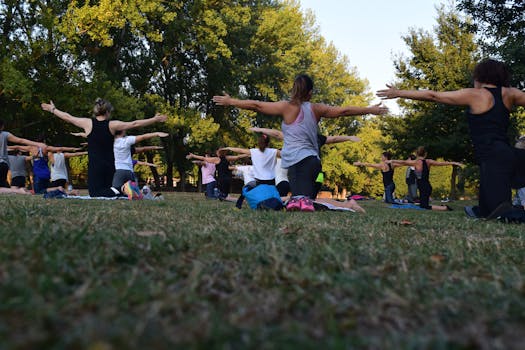The Benefits of Pilates for Older Adults
Aging gracefully is a goal many aspire to, but achieving it requires a proactive approach to health and wellness. One effective strategy for maintaining physical and mental vitality in later years is the practice of Pilates. This low-impact exercise regimen, originally developed in the early 20th century by Joseph Pilates, has gained widespread popularity due to its multifaceted benefits.

Particularly for older adults, Pilates can be a game-changer, promoting strength, flexibility, balance, and mental resilience.
Pilates focuses on core strength, flexibility, and awareness of body movement. These elements are crucial for older adults as they combat the natural decline in muscle mass and bone density that comes with age. Regular Pilates sessions can help seniors maintain or even improve their physical strength. By targeting the core muscles - those in the abdomen, lower back, hips, and buttocks - Pilates helps to support the spine and enhance overall body stability. This can reduce the risk of falls and injuries, a significant concern for seniors.
Flexibility is another key benefit of Pilates. As we age, our joints naturally become stiffer and less flexible. However, the gentle stretching exercises incorporated into Pilates can help to counteract this stiffness, improving joint mobility and reducing pain associated with conditions like arthritis. Moreover, improved flexibility can enhance functional abilities in daily activities such as bending down to tie shoes or reaching up to retrieve items from high shelves.
In addition to physical benefits, Pilates also offers substantial mental advantages. The focus on controlled breathing and precise movements requires concentration and mindfulness, which can boost cognitive function and mental resilience. Research has shown that regular physical activity can delay the onset of dementia symptoms and slow cognitive decline in older adults. Therefore, the mental stimulation provided by Pilates could contribute significantly to brain health.
Furthermore, participating in a regular exercise regimen like Pilates can foster a sense of community among older adults. Attending classes provides an opportunity to socialize and form supportive relationships, which can enhance emotional well-being and combat feelings of loneliness and isolation that are common in this age group.
The benefits of Pilates for older adults extend beyond the physical realm. It's a holistic approach to wellness that promotes not only strength and flexibility but also mental resilience and social connectivity. It's a tool for aging gracefully, maintaining independence, and improving quality of life.
However, as with any exercise regimen, it's important for older adults to consult with their healthcare provider before starting Pilates. While it's generally safe and low-impact, certain exercises may need to be modified or avoided for individuals with specific health conditions. A qualified Pilates instructor can provide guidance and ensure exercises are performed correctly to maximize benefits and minimize risk of injury.
Embracing the practice of Pilates can open the door to a more vibrant and active later life. It offers a pathway to improved physical health, sharper mental acuity, and a stronger sense of community. In essence, Pilates provides older adults with the tools they need to navigate the challenges of aging while celebrating the joys of their golden years. So, why not consider taking that first step into the world of Pilates? It could be your key to a healthier, happier, and more fulfilling future.